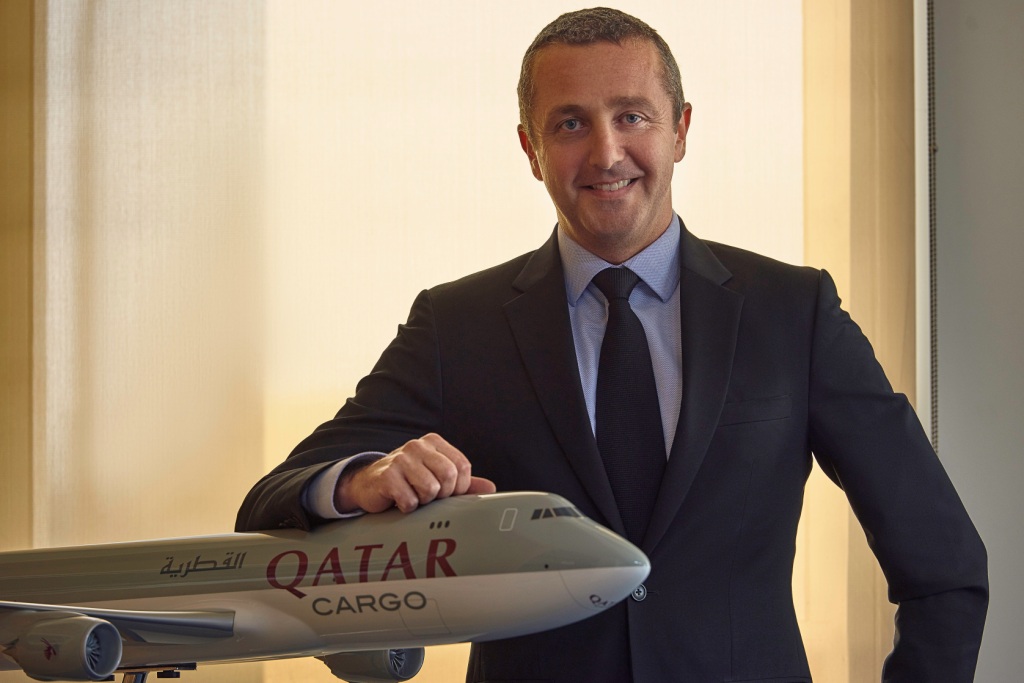Qatar Cargo’s ‘1 million kilos’ campaign just the start of sustainability drive
06 / 08 / 2020

Guillaume Halleux
Qatar Airways Cargo’s 1 million kilos project is just the start of a far reaching outreach project that the airline hopes will help reinforce the UN’s Sustainable Development Goals*.
The carrier announced its ambitious 1 Million kilos campaign, which was prompted by the Covid-19 outbreak, in mid-July. It will enable charities to use the carrier’s services to transport medical supplies and humanitarian aid from July to December this year for free.
But chief officer cargo Guillaume Halleux tells Air Cargo News that this is just the first chapter of its We Qare sustainability project, which he says is scalable and intentionally designed to be a permanent ‘work in progress’ that can be adapted to requirements.
“It’s a very ambitious project,” Halleux says. “Through We Qare, we are implementing a series of concrete actions that are based on the four fundamental aspects of sustainability (the economy, the environment, society and culture) and that are tailored to our activities and to our everyday experiences.
“With We Qare, Qatar Airways Cargo hopes to create a sense of fulfilment within our industry – whether by supporting charities, reducing our carbon footprint, fighting to protect wildlife, or promoting equality, diversity, young people and culture.”
Last year, Qatar Airways became the world’s largest international cargo carrier according to IATA statistics.
This leadership position is part of the reason that the airline decided to take a lead on sustainability.
“This position also comes with responsibilities,” says Halleux. “We are more than willing to shoulder these responsibilities. We want to set an example – from a business viewpoint, naturally, but also in terms of corporate social responsibility.”
“We Qare is fully in line with this aim and allows us to play a part in building tomorrow’s world – the ‘New Normal’.”
Top 25 cargo airlines: FedEx retains the top spot as Qatar climbs
Video: Qatar Cargo launches ‘1 Million Kilos’ campaign
Qatar Airways partners with Airlink to deliver Covid-19 relief
The next element of the campaign is still being formulated, but Qatar Airways hopes it will help the industry become more accountable for the impact air cargo has on the world.
“We want to play an active and leading role in moving mindsets forward within our industry for the sake of its future,” says Halleux. “An industry made up of committed stakeholders who care about the impact of their actions and who work to achieve sustainable economic development is vital.”
The 1 million kilos project is an example of the involvement of various supply chain stakeholders – freight forwarders choose which charities they want to support.
However, this doesn’t prevent charities from making direct contact with the freight forwarders they usually work with to have their humanitarian aid shipments transported for free.
It is hoped this approach will allow the airline to reach a wide range of organisations and populations in every region of the world.
Halleux adds that a number of freight forwarders have also offered their services for free as part of the project.
The cargo carrier expects that most of the humanitarian aid will be passive pharmaceuticals and medical supplies, given the Covid-19 outbreak, but can also include food items or other essentials – “all kinds of goods that those in the greatest difficulty need”, says Halleux.
Another essential point of is that no commercial shipments will take the place of a charitable shipment.
“If a charitable shipment is booked, we will not cancel it for a commercial shipment,” he says. “It seems only natural to us, but it’s important to highlight.”
The goods can be shipped anywhere in the world, as long the airline’s network allows.
Halleux concludes: “To ensure our business activity is inclusive and can continue in the long term, we need to put sustainability at the heart of the airfreight sector’s concerns. Currently, there is nothing in our industry to unite us around the issue of sustainability.”
*The UN’s 17 Sustainable Development Goals aim to address the global challenges related to poverty, inequality, climate change, environmental degradation, peace and justice.














